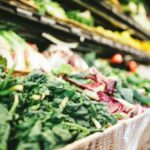Agriculture is responsible for over 50% of global deforestation and contributes to more than 26% of global greenhouse gas (GHG) emissions. At the same time, we need to increase food production by 60% by 2050 to meet the needs of a rising global population.
However, new technology solutions are enabling sustainability, scalability, and efficiency across the food and agriculture value chain. Here is how they are doing it:
- Precision Farming
AI-powered tools collect data from drones, satellites, and IoT sensors to optimize irrigation, fertilizer use, and pesticide application, cutting waste and minimizing environmental harm.
- Crop Yield Prediction
Machine learning models analyze weather patterns, soil conditions, and crop data to forecast yields. This enables better food security and smarter resource planning.
- Pest and Disease Management
Computer vision and pattern recognition help identify early-stage diseases or pest outbreaks, enabling precise, low-impact interventions and reducing chemical dependency.
Here are examples from leading companies
Zest (UK) – Tackling Food Waste and Protein Sustainability
Zest is combining AI and fungi fermentation to combat two significant sustainability challenges: by-product waste and protein production.
-
- By using agricultural by-products to grow fungi, Zest produces low-impact, high-protein food alternatives.
- AI models optimize fermentation conditions in real time to improve nutrient yield, reduce energy use, and enable cost-effective scale-up.
- Fungal protein production avoids ethical concerns associated with meat production and is free from religious dietary restrictions.
Regrow (USA) – Measuring Impact for Regenerative Ag
Regrow developed AI and machine learning models to deliver precision and scale for satellite imagery, simplifying data collection for farmers.
-
- AI analyzes satellite data to identify crop types, monitor planting/harvest cycles, and verify sustainable practices like cover cropping.
- Supports third-party certification of regenerative practices by validating on-the-ground change.
- Helps brands and supply chains quantify their emissions reductions and scale climate programs across large geographies.
Monarch Tractor (USA) – Electrifying Farm Machinery
Monarch’s MK-V is the world’s first fully electric, driver-optional tractor, guided by an AI platform called WingspanAI.
-
- The tractor’s autonomous operations can till, mow, and feed without a driver.
- Farmers can remotely monitor operations, receive real-time alerts, and stream live video from the field.
- As a fully electric vehicle, it eliminates diesel pollution and supports carbon reduction.
- AI makes data-rich decisions to optimize fuel, fertilizer, and water use, cutting costs and improving sustainability.
AI and digital technologies offer essential benefits:
- Cost savings through efficiency
- Resilience against supply chain risks
- Compliance with upcoming climate regulations
- Stronger partnerships with value-aligned growers and customers
AI and digital technology are empowering farmers with verified data, enabling them to do more with less and leading the way toward a regenerative future.








